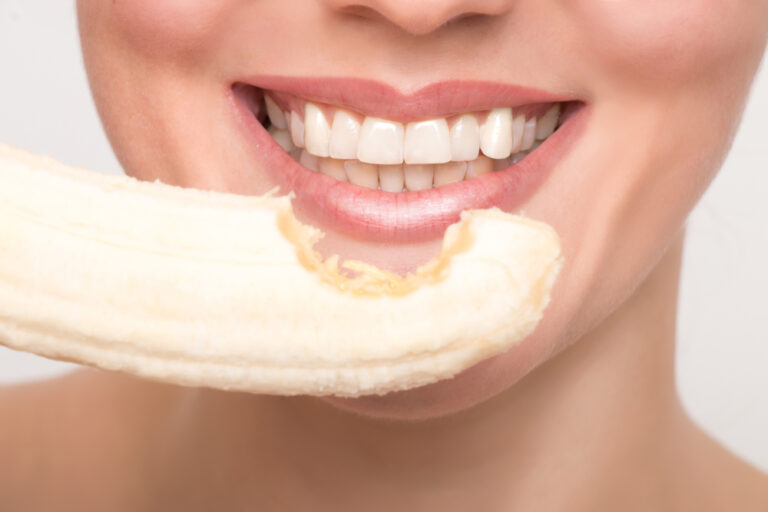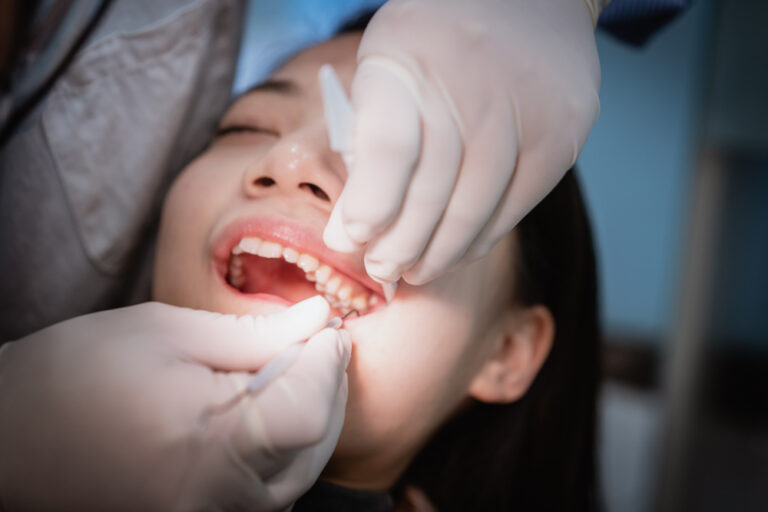Are you considering using hydrogen peroxide to whiten your teeth? If so, you may be wondering how long you can leave it on your teeth to achieve the desired results. While hydrogen peroxide is a common ingredient in many teeth whitening products, it’s important to use it properly to avoid damaging your teeth and gums.
According to dental experts, it’s generally safe to leave hydrogen peroxide on your teeth for up to one minute when using it as a mouthwash. If you’re using a hydrogen peroxide-based whitening gel or strip, you may need to leave it on for longer, but it’s important to follow the instructions carefully to avoid overexposure. Keep in mind that hydrogen peroxide can cause sensitivity and irritation if used too frequently or for too long, so it’s best to use it sparingly and under the guidance of a dental professional.
Overall, hydrogen peroxide can be an effective way to whiten your teeth, but it’s important to use it safely and responsibly. If you’re unsure about how long to leave it on your teeth or how frequently to use it, consult with your dentist to develop a personalized whitening plan that’s right for you.
Understanding Hydrogen Peroxide
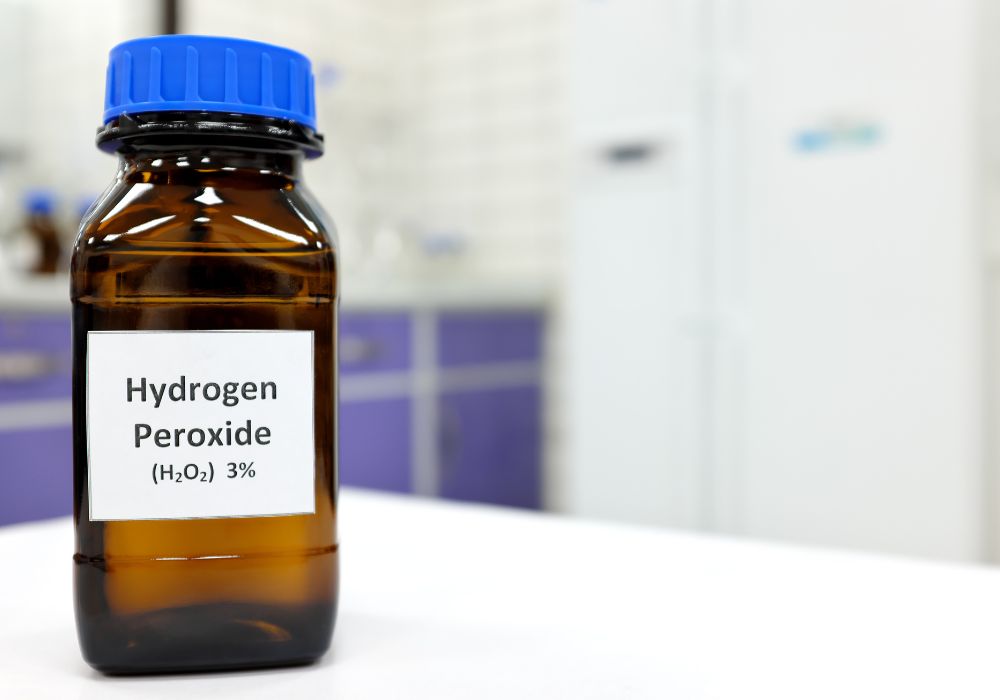
What Is Hydrogen Peroxide?
Hydrogen peroxide is a chemical compound that consists of two hydrogen atoms and two oxygen atoms. It is a colorless liquid that has a slightly bitter taste and a pungent odor. Hydrogen peroxide is commonly used as an antiseptic to clean wounds and as a bleaching agent for hair and teeth.
Uses of Hydrogen Peroxide
Hydrogen peroxide has a variety of uses, including:
- As an antiseptic to clean wounds and prevent infection.
- As a bleaching agent for hair and teeth.
- As a disinfectant for household surfaces and medical equipment.
- To remove stains from clothing and carpets.
- To treat acne and other skin conditions.
Hydrogen peroxide is also used in industrial settings as a bleaching agent for paper and textiles, as well as a propellant for rockets and missiles.
It is important to note that hydrogen peroxide should be used with caution, as it can be harmful if ingested or if it comes into contact with the eyes or skin. It is also important to follow the instructions on the product label and to avoid using hydrogen peroxide that has expired or has been contaminated.
Hydrogen Peroxide and Oral Health
If you’re looking for a way to brighten your smile, hydrogen peroxide may be an option for you. This antiseptic liquid has been used in oral health care products such as mouthrinses and dentifrices for a long time. Here are some benefits and potential risks of using hydrogen peroxide for your teeth.
Benefits of Hydrogen Peroxide for Teeth
Hydrogen peroxide can be an effective teeth whitener. It works by breaking down the stains on your teeth and removing them. When used properly, hydrogen peroxide can help you achieve a brighter, whiter smile. It can also help kill harmful bacteria in your mouth, which can lead to better oral health.
Potential Risks and Side Effects
While hydrogen peroxide can be beneficial for your oral health, there are some potential risks and side effects to be aware of. Using hydrogen peroxide too often or at high concentrations can cause damage to your teeth and gums. Here are some potential risks and side effects of using hydrogen peroxide:
- Tooth sensitivity: Using hydrogen peroxide can cause tooth sensitivity, especially if you have existing sensitivity or gum recession.
- Gum irritation: Hydrogen peroxide can irritate your gums, causing redness, swelling, and discomfort.
- Enamel damage: Using hydrogen peroxide too often or at high concentrations can damage your tooth enamel, leading to increased sensitivity and a higher risk of tooth decay.
- Digestive issues: Swallowing hydrogen peroxide can cause digestive issues such as nausea, vomiting, and diarrhea.
To avoid these potential risks and side effects, it’s important to use hydrogen peroxide properly. Always follow the instructions on the product label and talk to your dentist before using hydrogen peroxide for your oral health.
How Long Can You Leave Hydrogen Peroxide on Your Teeth
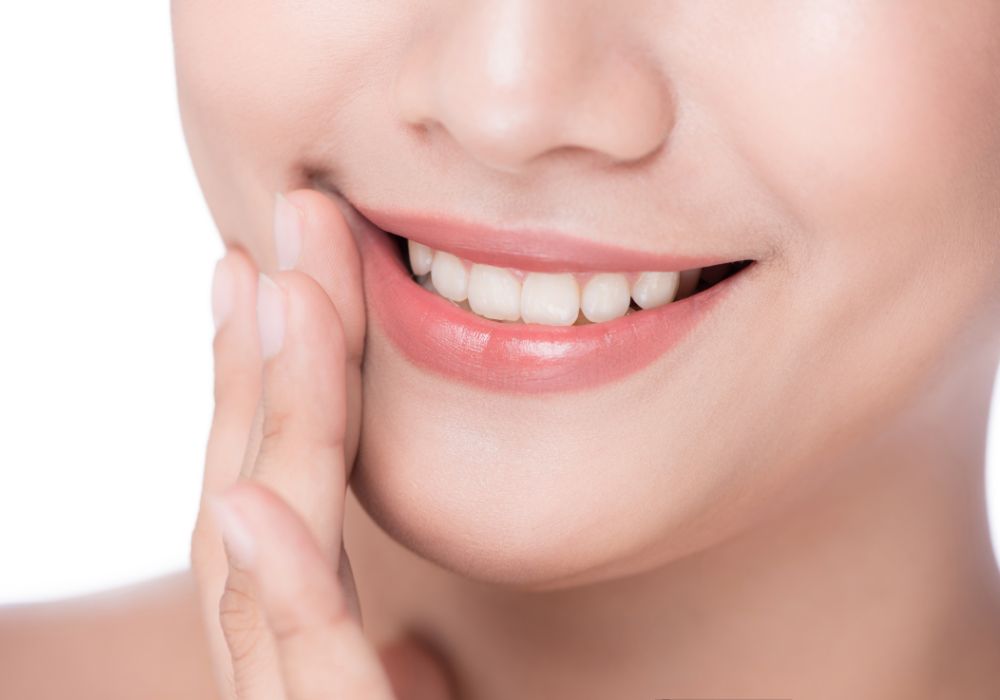
If you’re considering using hydrogen peroxide to whiten your teeth, you might be wondering how long you can leave it on your teeth. Here’s what you need to know.
Recommended Duration
The recommended duration for leaving hydrogen peroxide on your teeth varies depending on the concentration of the solution. For concentrations of 10% or higher, it’s recommended to only leave the solution on your teeth for 30 seconds to 1 minute. For lower concentrations, such as 3%, you can leave the solution on your teeth for up to 20 minutes.
It’s important to note that leaving hydrogen peroxide on your teeth for too long can cause sensitivity and irritation. If you experience any discomfort, stop using the solution immediately.
Effects of Overexposure
Overexposure to hydrogen peroxide can cause damage to your teeth and gums. It can lead to tooth sensitivity, gum irritation, and even chemical burns.
To avoid overexposure, it’s important to follow the recommended duration for your particular concentration of hydrogen peroxide. Additionally, you should never swallow the solution and rinse your mouth thoroughly with water after use.
In summary, the recommended duration for leaving hydrogen peroxide on your teeth varies depending on the concentration of the solution. To avoid overexposure, it’s important to follow the recommended duration and rinse your mouth thoroughly after use. If you experience any discomfort, stop using the solution immediately.
Alternatives to Hydrogen Peroxide for Teeth Whitening
If you’re looking for alternatives to hydrogen peroxide for teeth whitening, there are several options available. Here are a few alternatives that you can consider:
Baking Soda
Baking soda is an excellent alternative to peroxide-based teeth whiteners. While baking soda isn’t as effective as peroxide, it can still remove stains from your teeth and brighten them one or two shades. You can mix a small amount of baking soda with water to make a paste and brush your teeth with it. However, be careful not to use too much baking soda, as it can be abrasive and damage your tooth enamel.
Activated Charcoal
Activated charcoal is another alternative to hydrogen peroxide for teeth whitening. It works by adsorbing (not absorbing) surface stains on your teeth. You can use activated charcoal in the form of toothpaste, powder, or capsules. However, there is limited scientific evidence to support the effectiveness of activated charcoal for teeth whitening.
Fruit Peels
Fruit peels, such as orange or lemon peels, contain natural acids that can help remove surface stains on your teeth. You can rub the inside of a fruit peel on your teeth for a few minutes and then rinse your mouth with water. However, be careful not to use too much fruit peel, as the acid can erode your tooth enamel.
Oil Pulling
Oil pulling is an ancient Ayurvedic practice that involves swishing oil (such as coconut oil) in your mouth for 10-20 minutes. It is believed to help remove toxins and bacteria from your mouth, which can improve your oral health and whiten your teeth. However, there is limited scientific evidence to support the effectiveness of oil pulling for teeth whitening.
Whitening Toothpaste
Whitening toothpaste contains mild abrasives and polishing agents that can help remove surface stains on your teeth. However, it may take several weeks or months of regular use to see noticeable results. Additionally, whitening toothpaste may not be suitable for people with sensitive teeth or gum disease.
Overall, there are several alternatives to hydrogen peroxide for teeth whitening. However, it’s important to note that these alternatives may not be as effective as peroxide-based whiteners and may take longer to produce results. Additionally, some of these alternatives may have potential side effects or risks, so it’s best to consult with your dentist before trying them.
Safety Measures When Using Hydrogen Peroxide
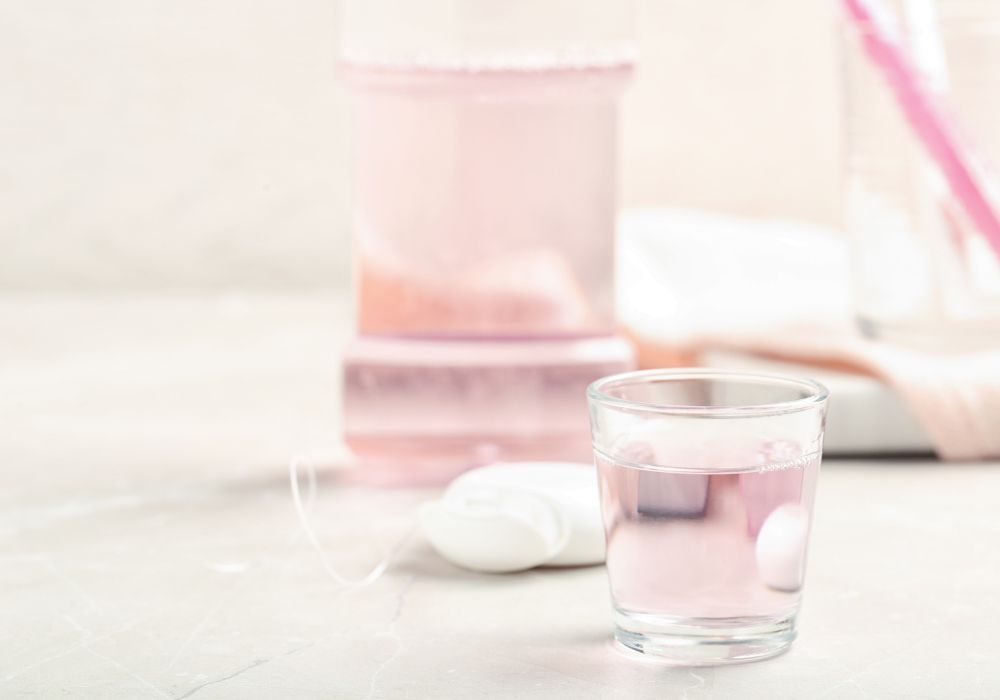
Hydrogen peroxide is a powerful bleaching agent that can help whiten your teeth. However, it is important to use it safely to avoid any potential risks. Here are some safety measures to keep in mind when using hydrogen peroxide:
Use the Right Concentration
Hydrogen peroxide is available in different concentrations. For teeth whitening, it is recommended to use a concentration of 3% or lower. Using a higher concentration can lead to gum irritation, tooth sensitivity, and even chemical burns.
Limit Exposure Time
Leaving hydrogen peroxide on your teeth for too long can damage your enamel and cause sensitivity. It is recommended to limit exposure time to no more than 30 minutes per day. You can also dilute the hydrogen peroxide with water to reduce its strength.
Avoid Swallowing
Hydrogen peroxide is not meant to be ingested. Swallowing it can cause nausea, vomiting, and even chemical burns in your digestive tract. Be sure to spit out the hydrogen peroxide after use and rinse your mouth thoroughly with water.
Protect Your Gums
Hydrogen peroxide can cause gum irritation and even chemical burns if it comes into contact with your gums. To protect your gums, use a custom-fitted tray or apply a small amount of petroleum jelly to your gums before applying the hydrogen peroxide.
Store Properly
Hydrogen peroxide should be stored in a cool, dry place away from sunlight and heat sources. Keep it out of reach of children and pets. Do not use expired hydrogen peroxide, as it may have lost its effectiveness and could be harmful.
By following these safety measures, you can safely use hydrogen peroxide to whiten your teeth and achieve a brighter smile.
Frequently Asked Questions
How long should I leave hydrogen peroxide on my teeth for teeth whitening?
When using hydrogen peroxide for teeth whitening, it’s important to follow the instructions carefully. Generally, you should not leave hydrogen peroxide on your teeth for more than two minutes at a time. Leaving it on for too long can damage your teeth and gums.
Is it safe to use hydrogen peroxide on teeth?
Hydrogen peroxide is generally safe to use on teeth, as long as it is used properly and in the correct concentration. It’s important to follow the instructions carefully and not to use hydrogen peroxide in concentrations that are too high.
What are the side effects of hydrogen peroxide teeth whitening?
Some people may experience sensitivity or discomfort in their teeth or gums after using hydrogen peroxide for teeth whitening. In rare cases, hydrogen peroxide can cause chemical burns or other damage to the teeth or gums. If you experience any discomfort or side effects, stop using hydrogen peroxide immediately and consult a dentist.
Can I mix hydrogen peroxide and baking soda to whiten my teeth?
Mixing hydrogen peroxide and baking soda can create a paste that can be used for teeth whitening. However, it’s important to use this mixture carefully and not to leave it on your teeth for too long. Using this mixture too frequently or leaving it on for too long can damage your teeth and gums.
Is 3% hydrogen peroxide effective for teeth whitening?
3% hydrogen peroxide can be effective for teeth whitening, but it may not be as effective as higher concentrations of hydrogen peroxide. It’s important to follow the instructions carefully and not to use hydrogen peroxide in concentrations that are too high.
How long does it take for hydrogen peroxide to whiten teeth?
The amount of time it takes for hydrogen peroxide to whiten teeth can vary depending on a number of factors, including the concentration of hydrogen peroxide used and the individual’s teeth. In general, it may take several weeks of regular use to see significant results.

